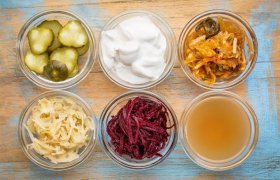Organic Baby Cereal vs Conventional Baby Cereal
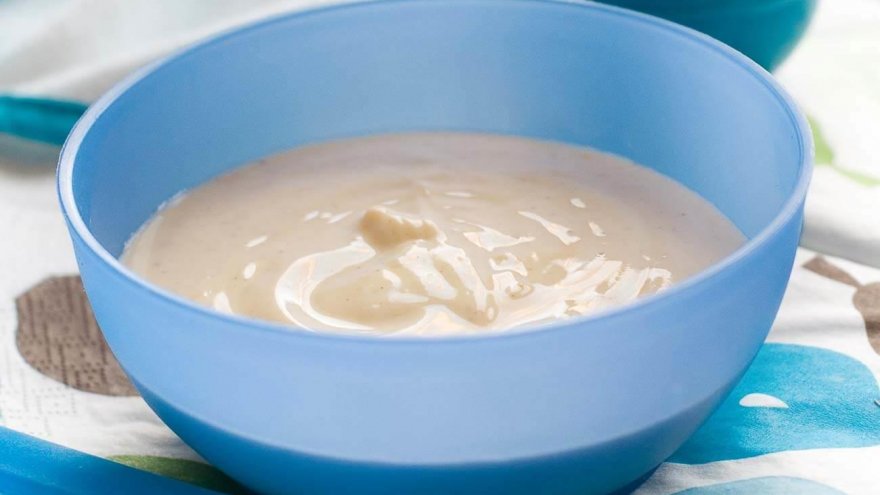
The minute your baby is born you’re in love. That rush of emotion is quickly followed by the thought that you’d do anything to protect them. Scientifically it makes sense that you’d feel this way. They need our protection, especially in the first few months.
 As you make choices that desire to protect is at the front of your mind. We’re constantly asking ourselves, what’s BEST for baby? Today we are going to help you make one of those decisions as we explore reasons to choose either organic or conventional baby cereal.
As you make choices that desire to protect is at the front of your mind. We’re constantly asking ourselves, what’s BEST for baby? Today we are going to help you make one of those decisions as we explore reasons to choose either organic or conventional baby cereal.
What is Organic Baby Cereal?
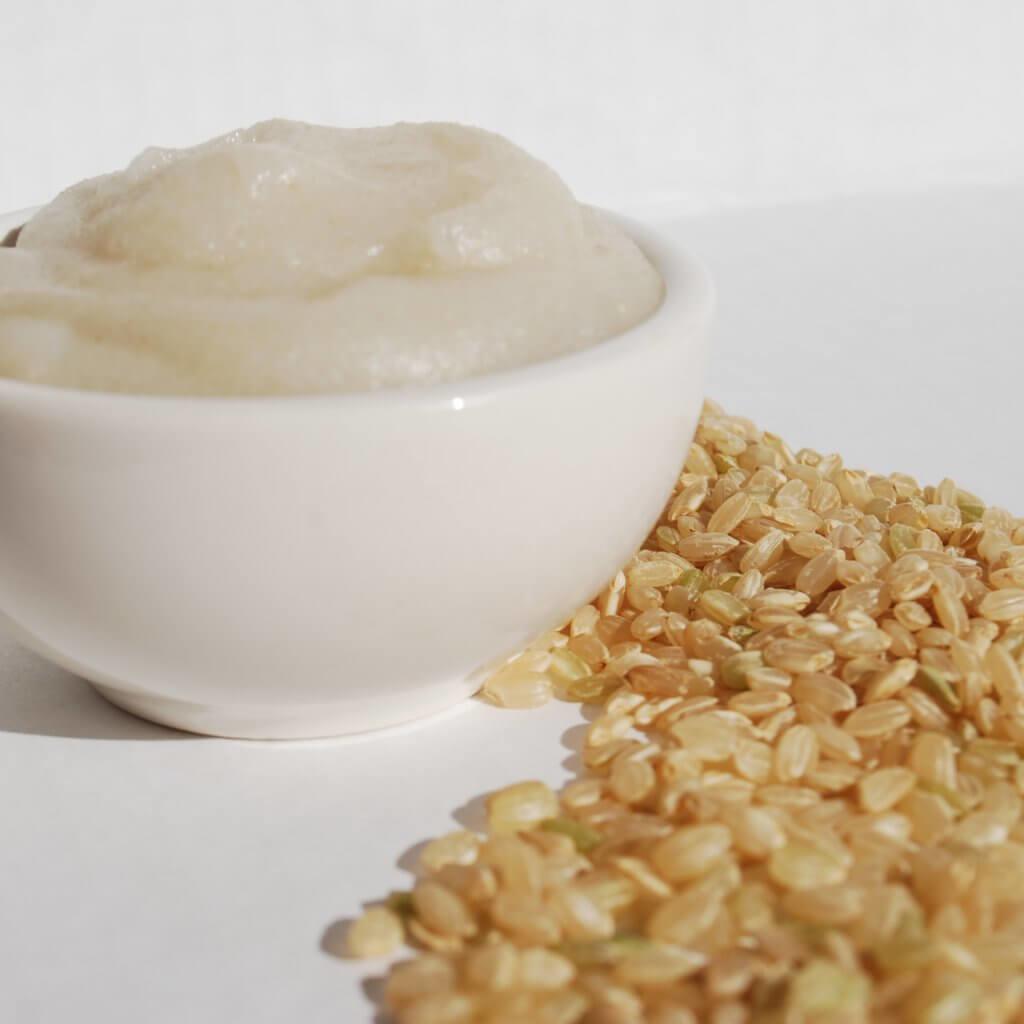 A food can be certified as organic by the United States Department of Agriculture. Since the label is an indicator to buyers that the food is grown naturally, there are strict guidelines for giving it. Starting at the farm, every aspect of food production is inspected. They test things like; soil quality, pest control, additives used, and weed control. Only food that meets the strict criteria is certified organic.
A food can be certified as organic by the United States Department of Agriculture. Since the label is an indicator to buyers that the food is grown naturally, there are strict guidelines for giving it. Starting at the farm, every aspect of food production is inspected. They test things like; soil quality, pest control, additives used, and weed control. Only food that meets the strict criteria is certified organic.
Do Organic Cereals Have Less Pesticides?
The thought of feeding a baby anything with pesticides is upsetting. So is conventionally made baby cereal full of them? The answer is no. There are limits to how much pesticide residue is allowed on food. These limits are established through scientific studies to determine at what point an amount becomes toxic to humans.
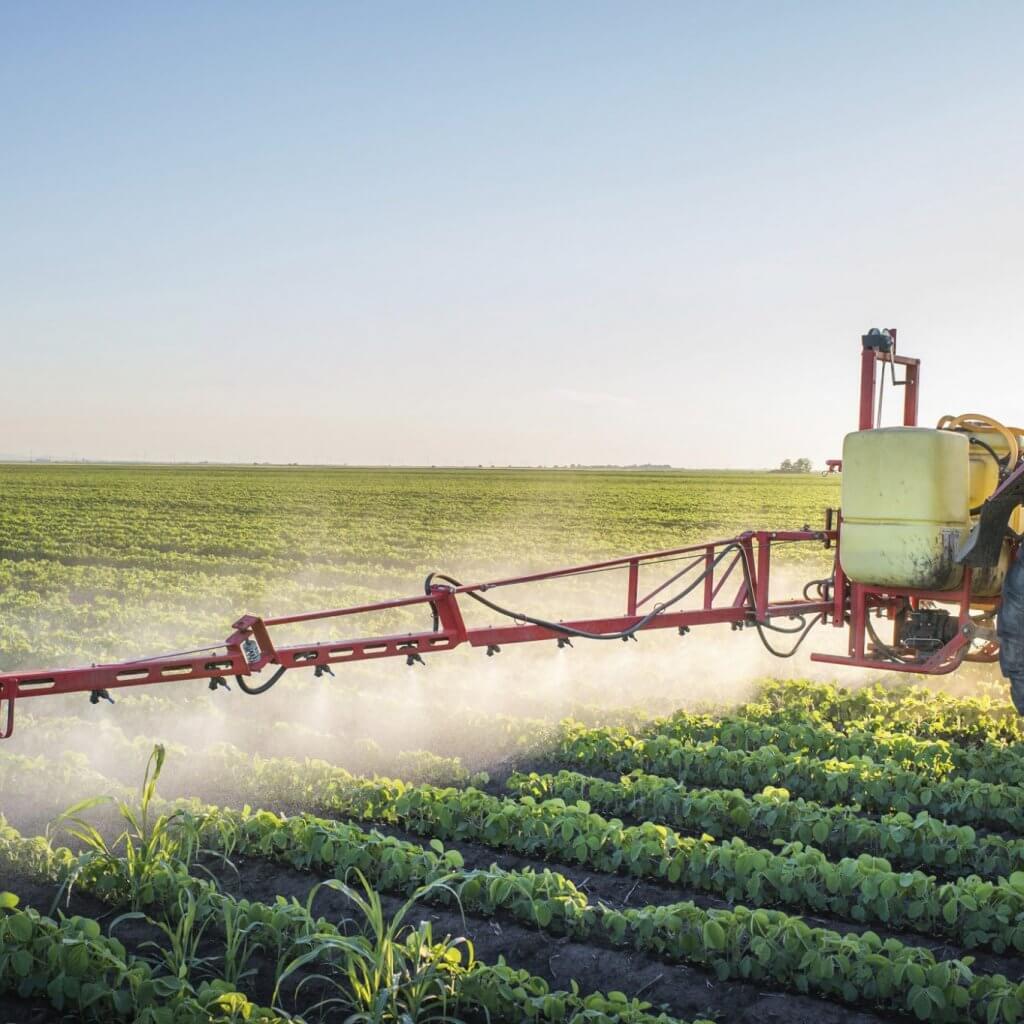
The topic of pesticides in baby food is an important one. Babies have a higher body fat ratio so are more sensitive to toxins than adults. That fact is not meant to scare parents away from conventionally made foods. Organically grown grains aren’t pesticide-free, they’re limited on the types of pesticides that can be used.
Organic foods are limited on the type of pesticides that are used but both types are subject to the same allowable levels. They’re safer for the baby not because of the levels of pesticide but the toxicity of those chemicals. To be certified organic a farm has to use natural pest and weed control techniques. Instead of resorting to dangerous chemicals, they use biological ones that are safe for humans.
Does Organic or Conventional Baby Cereal Have More Nutrients
Ask a parent how they choose baby food and one of the first responses will be, they go for the one that’s healthier. The organic vs conventional nutritional value debate has long been fought. For decades the science seemed to favor the point that conventionally grown was as nutritious as organic. New results show that there are some nutritional benefits but much of the studies are completed on meat and produce. Neither of which are in baby cereal.
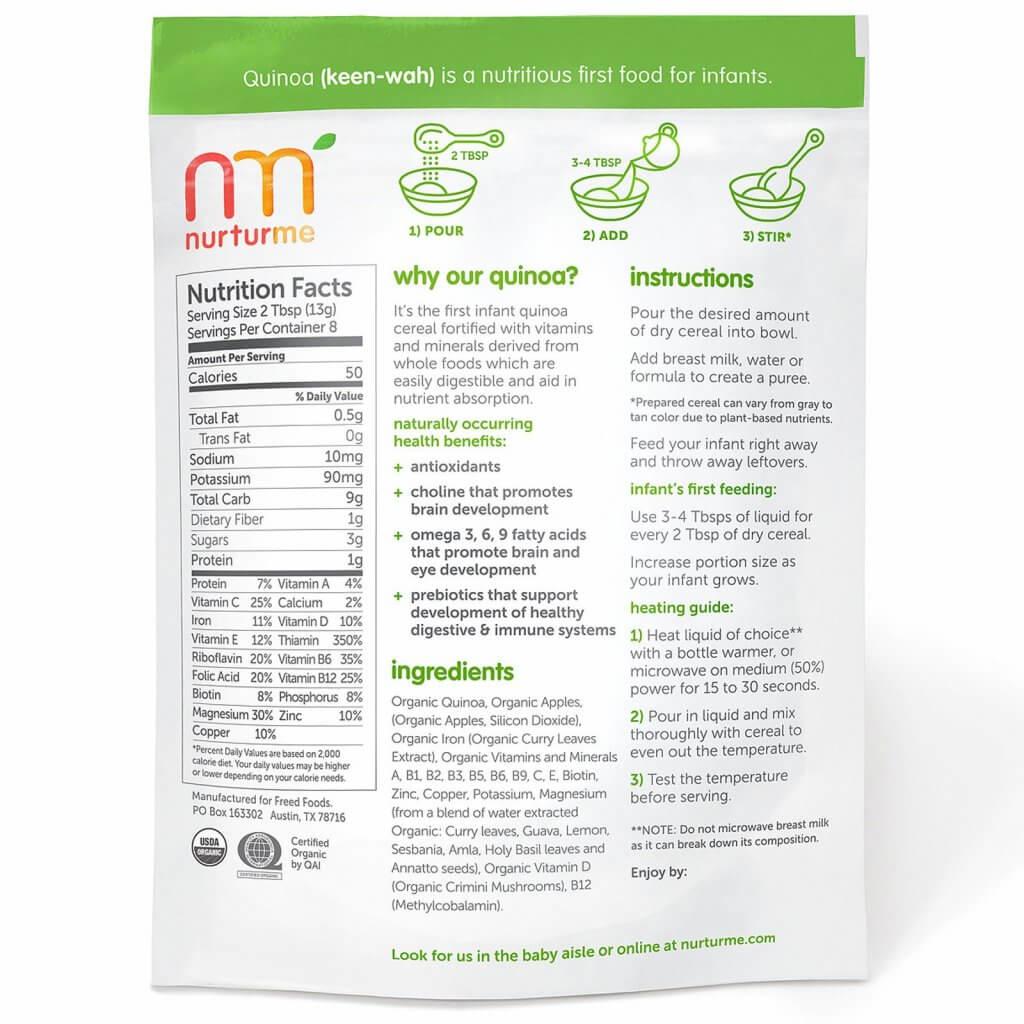
When discussing the most nutritious grains for baby cereal the experts agree it’s more about which grain than how it’s grown. As an example, many suggest that the first grains should be whole. Nutrient-rich grains are high fiber choices like barley, whole wheat, and oatmeal.
Is Organic Cereal More Environmentally Friendly?
With all the talk about pesticides and modified foods, organic baby cereal must be better for the environment, right? The answer to this question is, in some ways. It’s true that grains grown using organic methods don’t cause the same damage to the environment as their conventional counterparts.
 Whether food is environmentally friendly doesn’t end with how it’s grown. The processing, packaging, and transportation of food has a huge effect on the environment. If this article were discussing produce, the answer would be to shop at a local farmer’s market. Since we’re talking grains for baby cereal, reducing the carbon footprint isn’t that simple.
Whether food is environmentally friendly doesn’t end with how it’s grown. The processing, packaging, and transportation of food has a huge effect on the environment. If this article were discussing produce, the answer would be to shop at a local farmer’s market. Since we’re talking grains for baby cereal, reducing the carbon footprint isn’t that simple.
If you decide to feed baby cereal regularly consider these two questions: Is the brand of cereal I chose in environmentally friendly packaging? Is the brand committed to reducing their carbon footprint? You can help reduce the negative effects by simple actions like recycling empty cereal containers.
Is Organic Worth the Price?
It’s no secret that organic food costs more than those produced conventionally. As an example of the price difference, a popular brand of baby cereal costs $0.25/oz. and organic is $0.36/oz. No, the increase isn’t huge per ounce but considering that an average serving size is 1 – 2 ounces, the difference in price can place a strain on food budgets.

If you’re concerned about affording organic baby cereal, you may want to contact the manufacturer of your favorite brand. Big baby food brands often give coupons that can be combined with store sales to dramatically reduce the cost.
How do you Choose Between Organic & Conventional?
Choosing whether to feed your baby organic or conventional cereal is an important decision. Organic food has fewer pesticides and free from genetic modifications. Babies benefit from eating high fiber grain cereal. Based on both expert opinion and scientific evidence, we believe organic baby cereal is the best choice.
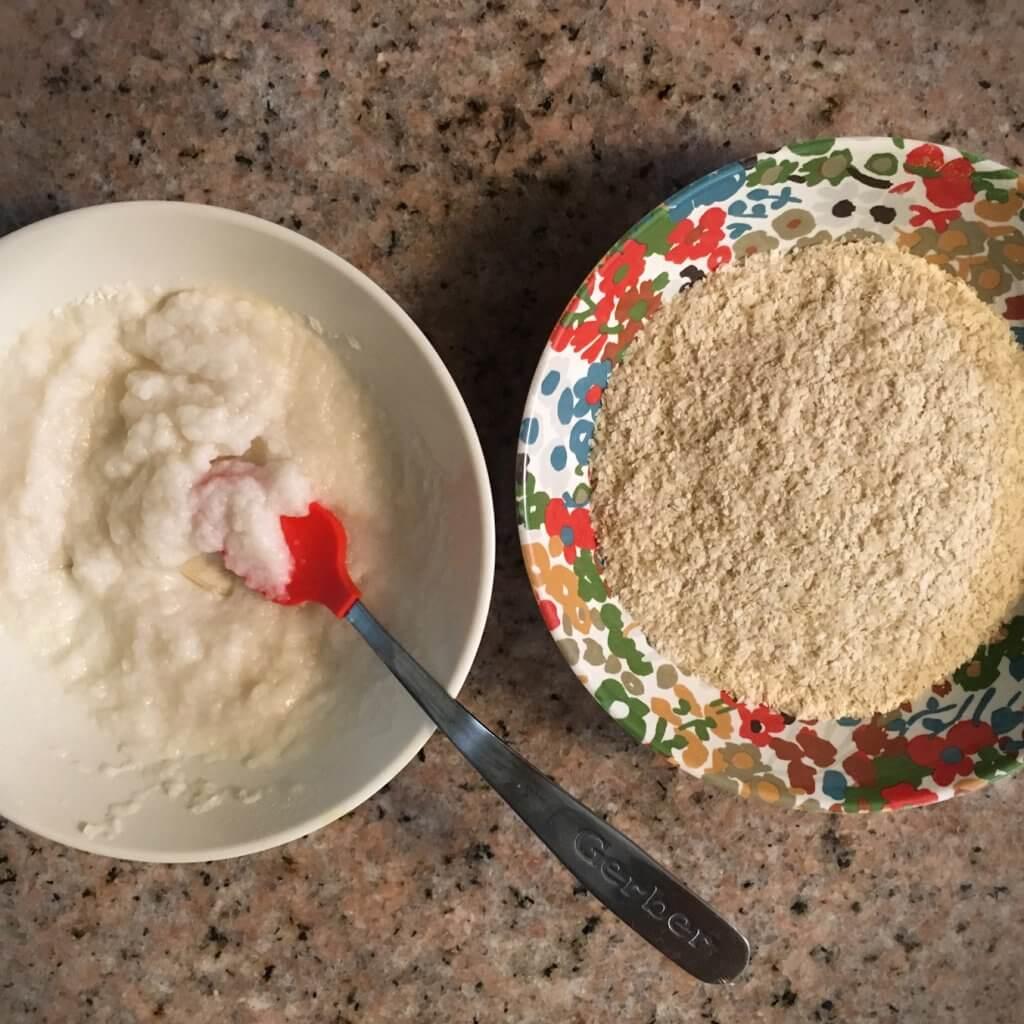 If you’re interested in reading the scientific studies on the topic, they’re including in the sources below. We hope this article helped clarify the main reasons to buy organic baby cereal.
If you’re interested in reading the scientific studies on the topic, they’re including in the sources below. We hope this article helped clarify the main reasons to buy organic baby cereal.

